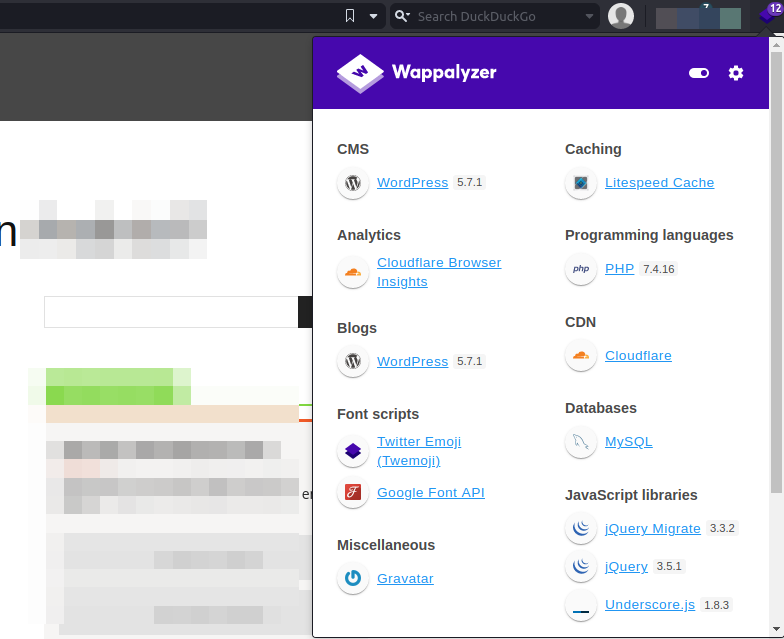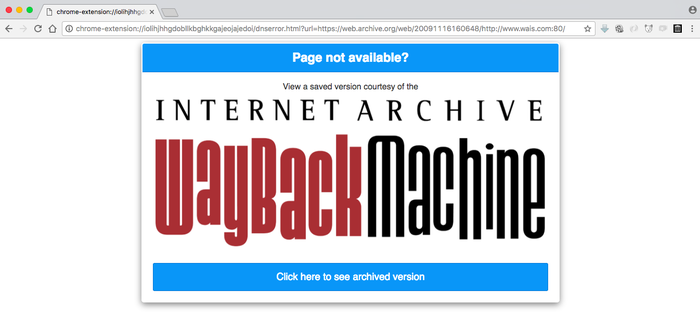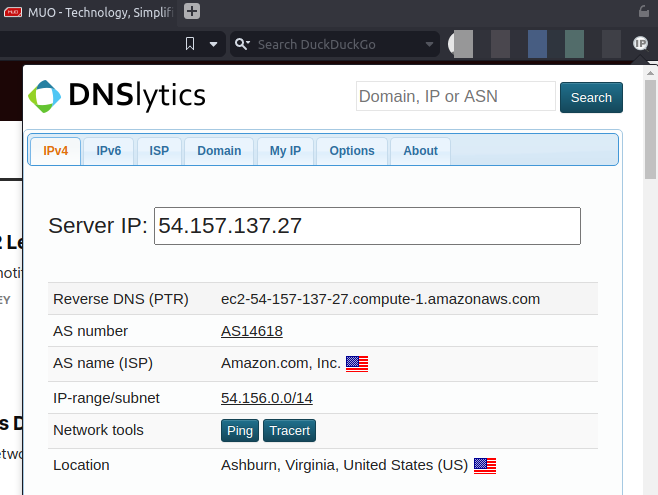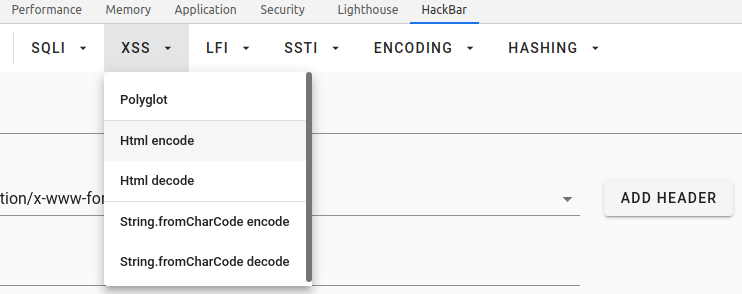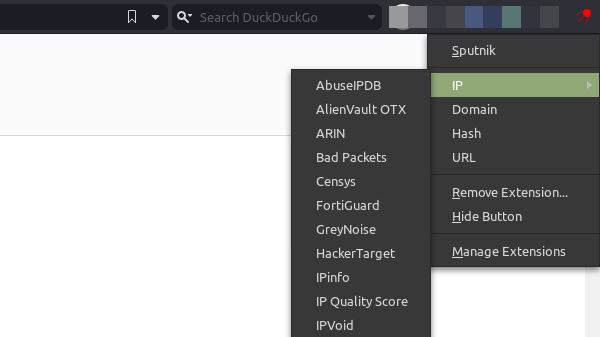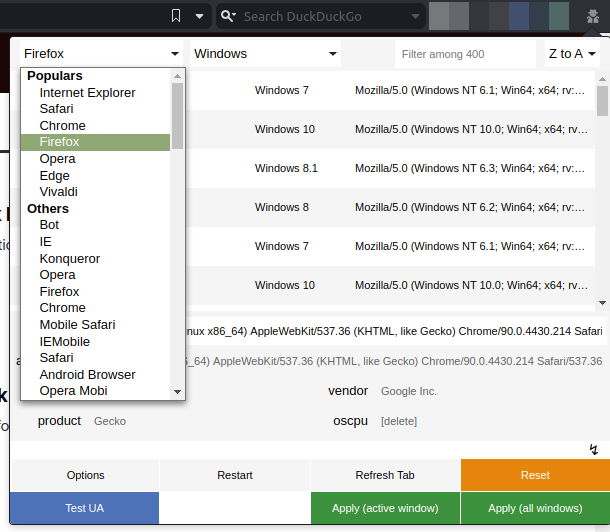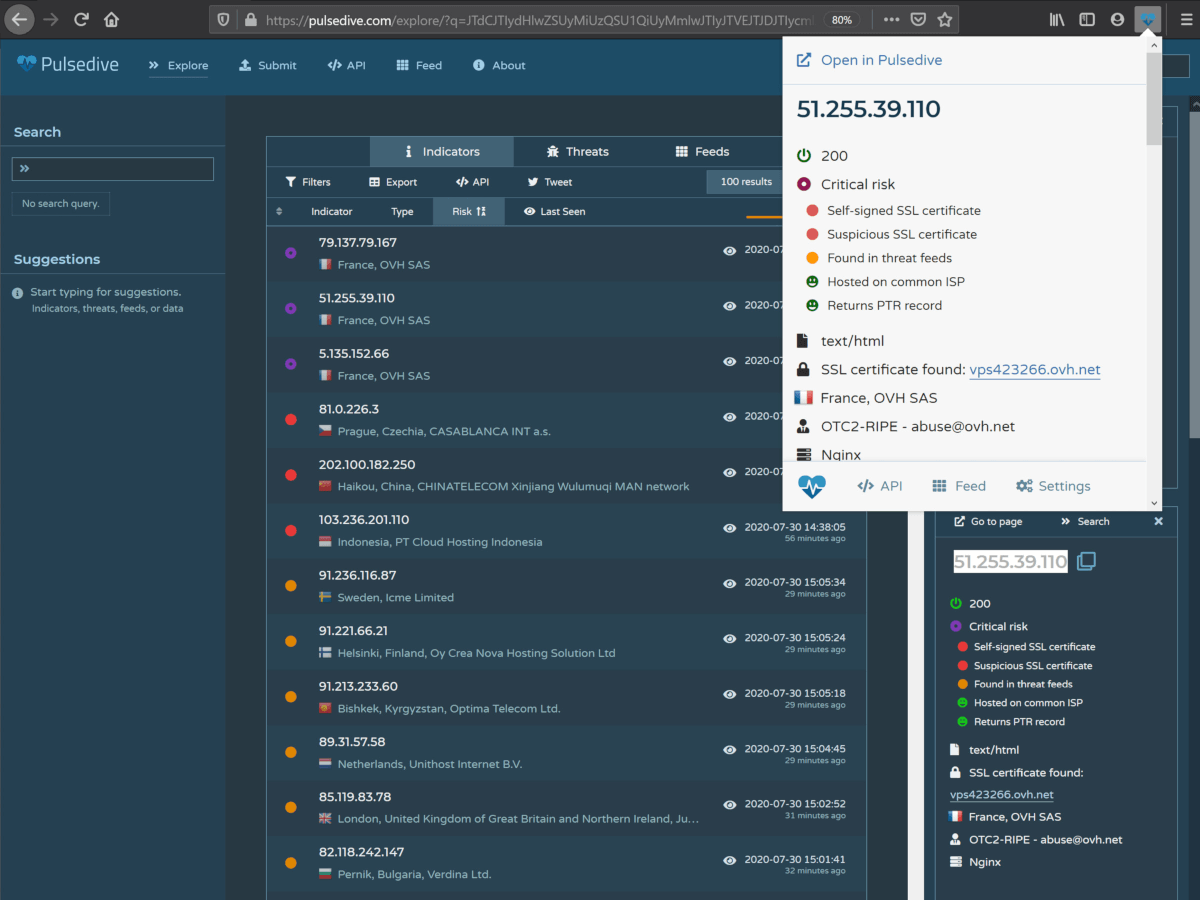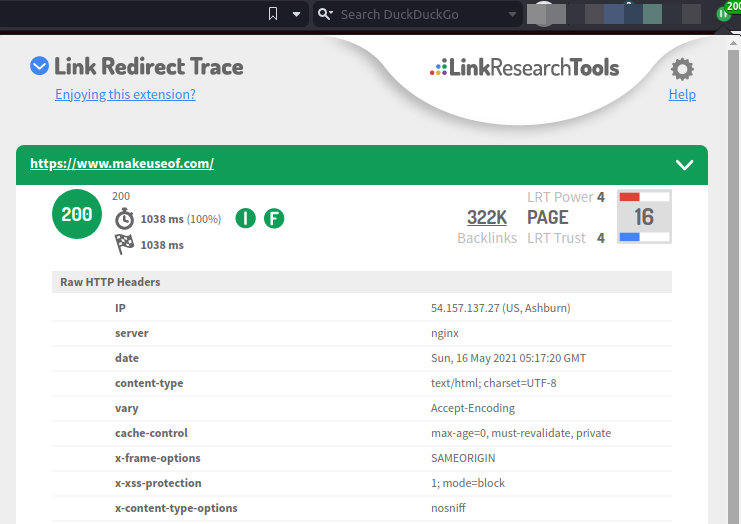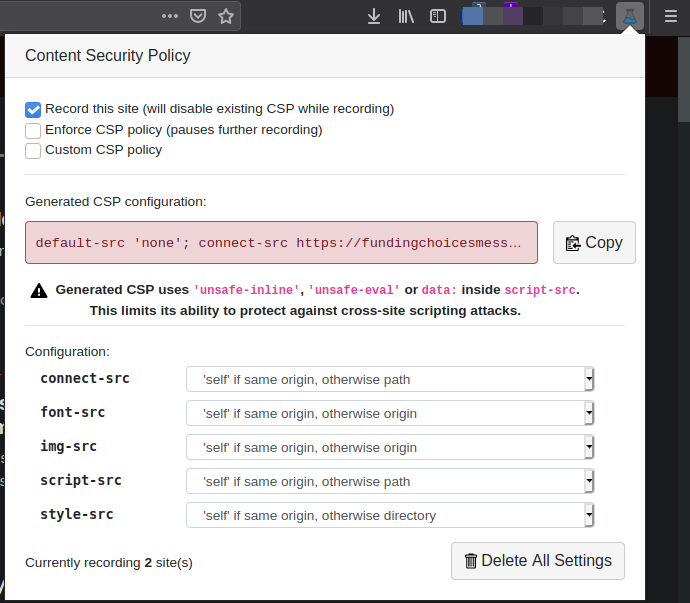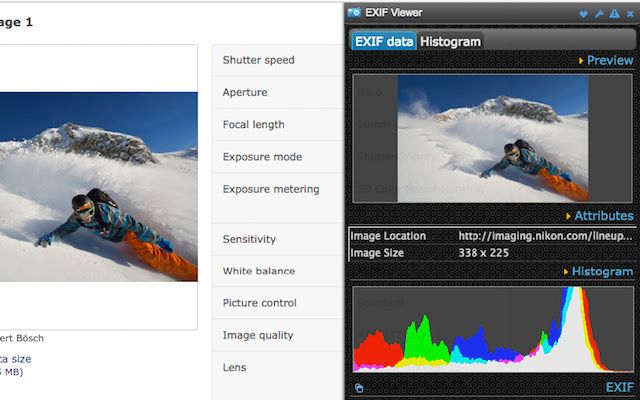Browser extensions make a lot of things easier. They're not just limited to general browsing usage, but can also come in handy for cybersecurity professionals.
It saves time for security researchers to quickly analyze a website, or online service—no matter whether they are looking for potential security issues or just doing a background check.
Here are some of the best browser extensions that cybersecurity researchers, ethical hackers, or penetration testers find useful. Even if you are not one, you can still use these extensions to find out more information about the websites you visit.
Most Popular Web Browser Add-ons for Security Researchers
You can find most (but not all) of the popular options listed below for both Google Chrome (or Chrome alternatives) and Mozilla Firefox.
1. Wappalyzer
Wappalyzer browser extension is incredibly useful to identify the technologies used to create a website.
Of course, if you are an experienced web developer, you might be able to quickly notice without an extension. But this saves your time investigating a website to find out what it uses in the back-end.
It can detect the Content Management System (CMS), programming language, widgets, databases, Content Delivery Network (CDN), script, and a lot more.
With the information about the technologies used, a researcher can focus on what aspect to look for when finding an issue with the site.
Do note that you may not find all the details for every website—some try to hide it.
Download: Wappalyzer for Chrome | Firefox (Free)
2. Wayback Machine
A webpage can change any day, but with the help of Wayback Machine add-on, you can rewind to see what the website used to look like. Taking a look at an archived version might help you collect sensitive data or spot other historical issues.
It is an extension that makes use of the Internet Archive. So if you do not want to install an extension, you can directly use the website.
While it works most of the time, if a website is new or there are any other indexing issues, the archived version may not be available.
Download: Wayback Machine for Chrome | Firefox
3. IP Address & Domain Information
This tool gives you detailed information of a website's IP address and other data associated with the domain, like contact details.
With these details, you can try to assess the website security and credibility with precision. You can locate the website's server address, hosting information, evaluate login security, and check if it is a part of a malicious network.
Download: IP Address and Domain Information for Chrome | Firefox
4. HackBar
HackBar is a useful tool for penetration testers, i.e. ethical hackers. With the help of this tool, you can find vulnerabilities in a website and evaluate the security measures. You will have to access it using the developer tools in Chrome.
It is an open-source project that you can also find on GitHub if you are curious.
Download: HackBar for Chrome
5. Sputnik
Sputnik is yet another tool to help you get details and insights on a website. You can get the IP address, SSL certificate information (to verify whether it's secure), and various related data with the help of third party service integrations available.
It saves you time by quickly redirecting you to those services to get information about a site.
Download: Sputnik for Chrome | Firefox
6. User-Agent Switcher and Manager
If you want to prevent websites from learning about your browser information when analyzing websites, this can come in handy.
The User-Agent Switcher lets you spoof websites to show that you are accessing from a mobile browser or a different browser. You can even select a different operating system.
It also lets you configure for which site you want to spoof and disable for usual browsing activities. Overall, it features a lot of options to choose from, so don't be afraid to explore!
Download: User-Agent Switcher and Manager for Chrome | Firefox
7. Pulsedive Threat Intelligence
Pulsedive Threat Intelligence can prove to be an all-in-one tool for security professionals who want a complete set of information about a website.
Unlike some other tools, it is not limited to third-party services but also user reports and threat intelligence feeds. So you get a broad network to collect information about a website for any specific purpose.
Some of the insights include SSL certificate information, WHOIS data, threats, technologies, and much more. In other words, it could replace multiple browser extensions. As a user, you might find the information overwhelming, but you can still explore it to get some idea.
Download: Pulsedive Threat Intelligence for Chrome | Firefox
8. Link Redirect Trace
Link Redirect Trace is an impressive tool to analyze links when a website redirects.
When you click on a link, it connects to a lot of resources along with the page you are trying to load. And with this tool, you can get all the information you need about those connections.
It'll tell you if the links are safe, accessible (or broken), and other backlink-related information. You can also find hidden redirects that some sites may be using for malicious activities.
Download: Link Redirect Trace for Chrome | Firefox
9. Laboratory (Content Security Policy)
A proper Content Security Policy (CSP) helps fight against common attacks. The threats include cross-site scripting (XSS), clickjacking, and other attacks that could change the code of a trusted website to spread malware.
With this tool, you can generate a suggested CSP header to protect against some common web attacks.
Download: Laboratory for Chrome | Firefox
10. EXIF Viewer Pro
EXIF metadata of an image often includes a great deal of information like the camera used, location, and modification/creation date.
While you can find a lot of EXIF viewer extensions for your browser, this provides one of the most complete datasets. This information usually helps in forensic analysis for a researcher.
Download: EXIF Viewer Pro for Chrome
Extensions Make It Easy to Collect and Analyze Information
With the help of browser add-ons, you can quickly find the information for further investigation and research.
Every extension serves a different purpose and may not affect your browsing experience. Nonetheless, it is best to not have all the extensions installed at the same time if you are facing issues.


